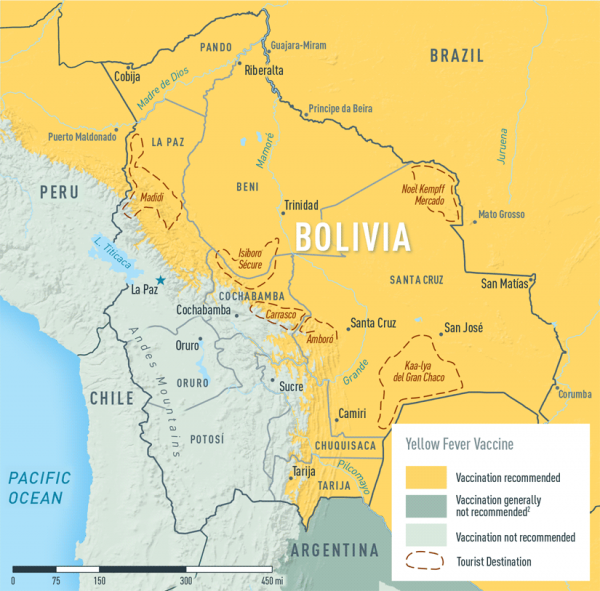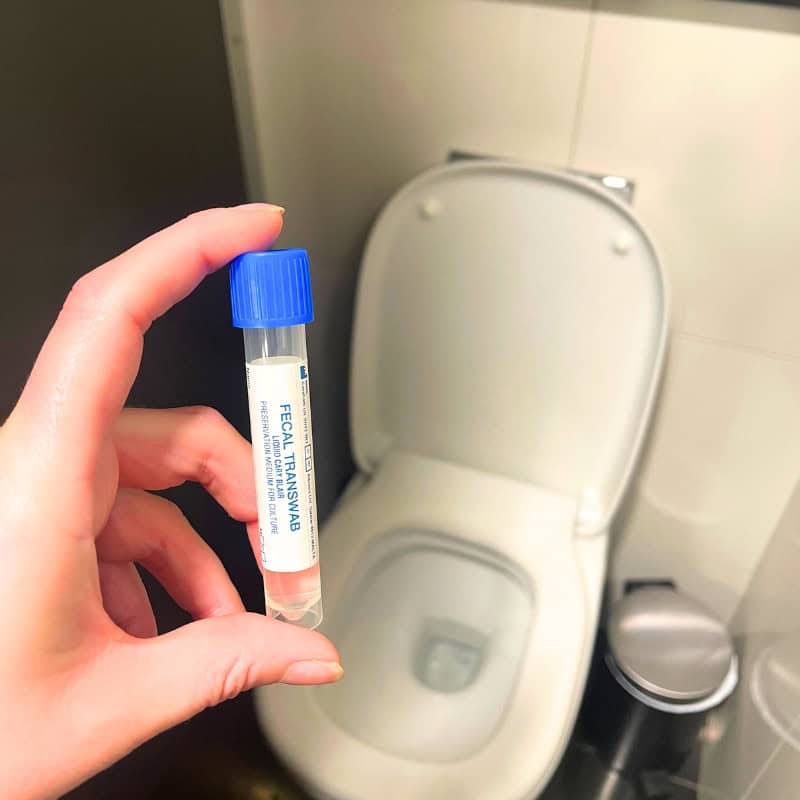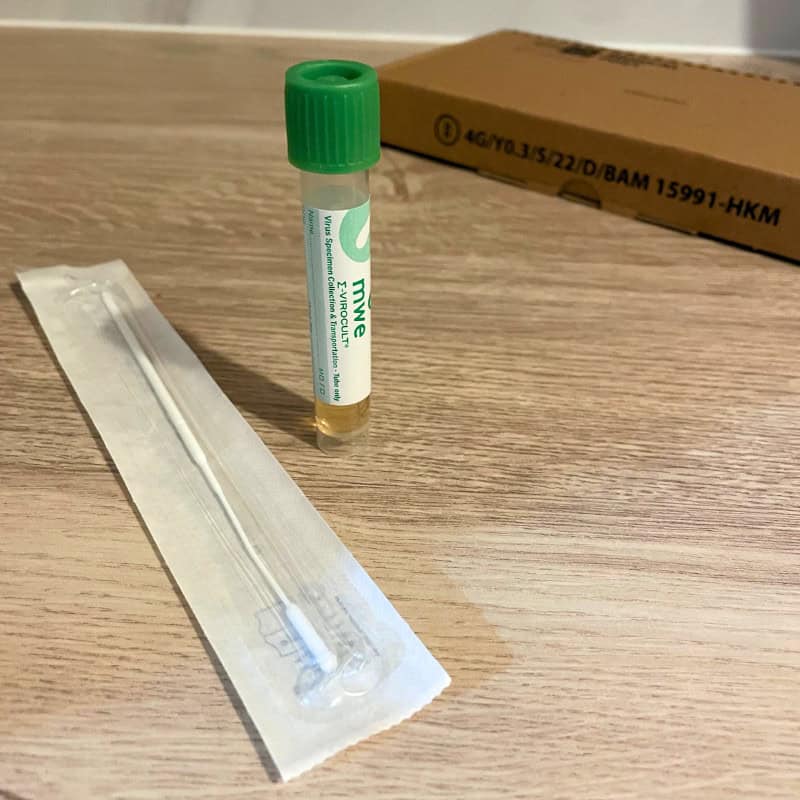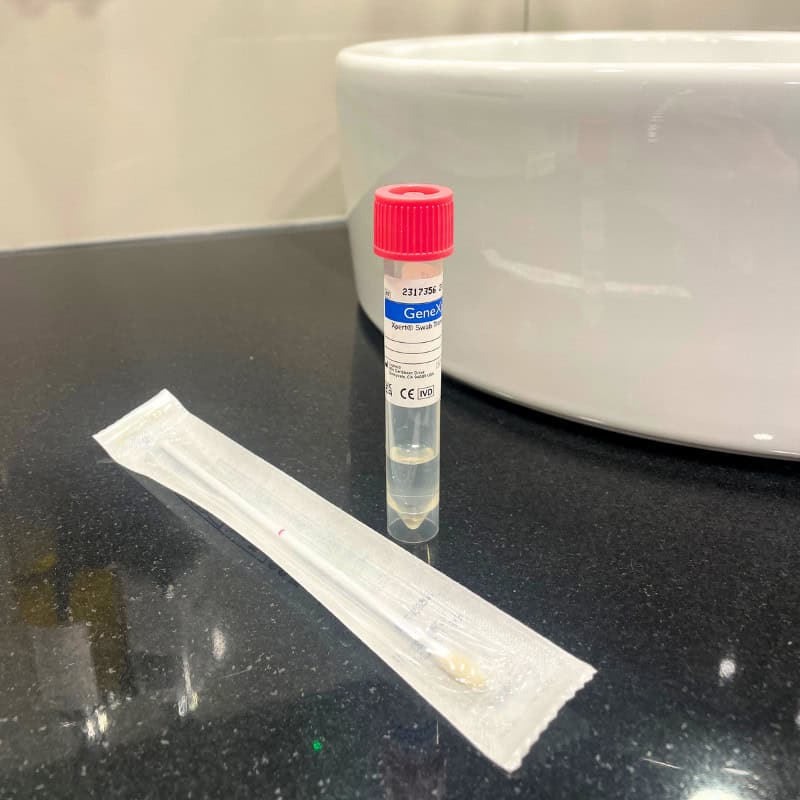Tag: Altitude
Bolivia is famous for its salt flats and varied terrain spanning over the Andes Mountains, the Atacama Desert and Amazon Basin rainforest. Located in South America, the climate varies drastically from one eco-region to the other. Travelling around Bolivia you’ll experience different climatic extremes, such as humid tropical climates to subtropical climates to desert-polar climates. It is important to seek travel advice before travelling as medical advice can vary dependent on the area/s you plan to visit.
Our general advice includes:
Vaccines
Routine immunisations are a high priority; it is good to check that they are all up-to-date before travelling anywhere. Given the current worldwide outbreaks, we strongly recommend checking your immunity status to measles. A simple immunity test can confirm all those who are unable to source vaccine proof. The best protection against measles is having 2 doses of a measles-containing vaccination, such as the MMR.
Travel vaccinations for Bolivia vary depending on where you plan to travel, and what you plan to do. It is best to book a consultation with a travel nurse to discuss your upcoming adventure. They will assess what risks you will potentially be exposed to. From this, they can develop a bespoke treatment plan specifically for your holiday.
As a minimum, travellers should be protected against Hepatitis A, and diphtheria, tetanus and polio. Certain travellers may consider vaccinations against typhoid, Rabies, Hepatitis B and Yellow Fever.
Yellow Fever
Yellow Fever is an unpleasant virus spread by the Aedes aegypti mosquito. This mosquito tends to bite during the day and is present in many lowland areas of South America and in all areas below 2,300m in Bolivia. Travellers who intend to visit the lowlands, such as the Chaco, Santa Cruz district and the Amazon may be advised to have the vaccine.

If your travel route includes other South American countries, you may also require the vaccination and an accompanying Yellow Fever Certificate in order to enter that country. The vaccination is not suitable for everybody. A careful risk assessment should be undertaken by a practitioner that specialises in the vaccine. Yellow Fever can only be given at designated Yellow Fever vaccination centres (YFVCs) – Fleet Street Clinic is a registered clinic.
Altitude
Bolivia is home to some of the highest peaks of the Andes mountains, with elevations of over 6,000m. The frequently visited cities of La Paz, Potosi and Uyuni all soar over 3,500m, making altitude sickness a real risk. The risk can be reduced by ensuring you stay hydrated, plan a slow ascent and factor in some acclimatisation days. Acetazolamide (Diamox) can be used to help aid the process. Book a pre-travel assessment and speak to a travel nurse about your options.
Insects
Mosquitoes, bugs and flies do more than just bite. They have the ability to transmit diseases that aren’t always preventable by vaccination or medication. Illnesses such as dengue fever, chikungunya, Zika, yellow fever, malaria and sleeping sickness are a few risks.
The best prevention is to entirely avoid mosquito bites. Cover up as much as possible and apply a minimum concentration of 50% DEET to any areas of exposed skin. Spraying your clothes with permethrin before travelling can provide extra protection. Sleep under a mosquito net, especially, if you plan to stay anywhere remote or rural.
See our Ultimate Bug Kit.
Malaria
Malaria occurs in the northern parts of Bolivia, in the Beni and Pando districts. Travellers heading to these areas should ensure they take anti-malarial medication. Mosquitoes that spread malaria are predominantly night-time biters. So, extra precautions should be taken between dusk and dawn. Any travellers who experience fever or flu-like symptoms on return from their trip should ensure they get tested for malaria, as unfortunately, no single prevention method is 100% effective.
First Aid
Whilst medical services and pharmacies are available in bigger cities, access to basic services is limited or even non-existent in the remote regions. Travel prepared and take a small medical kit that can treat basic complaints. Pack painkillers, antiseptic cream, plasters or dressing, and medication in case you suffer from an upset stomach. Head over to our online shop to purchase an essential first aid medical kit. This contains all your travelling medical essentials.
If you are prone to allergies, a non-drowsy antihistamine is helpful. Furthermore, if you take prescription medication, be sure to pack enough to last you for your entire trip.
Book your travel appointment today
By Anna Chapman | Travel Nurse | May 2019
Uzbekistan is home to spellbinding architecture and ancient cities. In terms of sights alone, Uzbekistan is Central Asia’s biggest draw and most impressive showstopper. Fabulous mosques, medressas and mausoleums are just some of the pulls for tourists when visiting Uzbekistan while more eccentric views can be seen at the fast disappearing Aral Sea and Nuratau Mountains.
Travel Nurse, Anna, shares her top tips on how to stay healthy during your trip to Uzbekistan.
Vaccinations
Ensure you are up-to-date with your travel vaccinations. The minimum advised for a trip to Uzbekistan is diphtheria tetanus and polio, and Hepatitis A. Typhoid, Hepatitis B and Rabies can be considered by some travellers. It is advisable to attend for a pre-travel assessment with a travel nurse 6-weeks before your trip as some vaccinations requires several injections to complete the course.
Food and water
Precautions against the dreaded traveller’s diarrhoea should be taken to prevent an upset stomach ruining your trip. Do not drink tap water in Uzbekistan, stick to bottled water or water that has been boiled. If you are trekking or visiting remote areas it’s a good idea to take either a water bottle with a filter or some chlorine dioxide tablets to make water safe to drink, should you not be able to find a shop with bottled water.
Sour milk dishes dominate the Uzbek cuisine. Cue caution if you want to try ‘kurt’, the famous fermented cheese balls. There is a risk of a bacterial disease called brucellosis that can be spread through unpasteurised dairy products such as cheese and milk.
Travelling further afield
Uzbekistan forms one of the countries on the old silk route. If you plan on a tour of the ‘Stans’ or attempting the whole Beijing to Istanbul route, you may need to consider other travel health precautions. Depending on your route, and also the time of year you intend to travel, you may wish to consider vaccinations against Tick-Borne Encephalitis and Japanese Encephalitis.
Altitude
Khazret Sultan, Uzbekistan’s highest peak stands at 4643m. Many popular walking and hiking routes such as Big Chimgan exceed over 3000m, making altitude related illnesses a hazard. Tips for reducing altitude sickness include a slow ascent route, keeping hydrated, ensuring that your sleeping altitude doesn’t exceed 500m per day. Diamox (acetazolamide) is a prescription medication that can reduce the symptoms of altitude related illness.
Book your travel appointment today
By Anna Chapman | Travel Nurse | April 2019
Marrakesh is a former Imperial City and the heart of Morocco. Whether you plan on visiting the medinas of Marrakesh or branch out to the sands of the Sahara or the heights of the Atlas mountains, ensure you follow our top travel tips to stay healthy.
Vaccinations
All travellers should ensure they have received vaccinations against Hepaitis A and diphtheria-tetanus and polio. Vaccinations against typhoid should be considered for those who cannot guarantee safe food and water during their trip, Hepatitis B and Rabies vaccinations can be considered for some travellers, especially those travelling to more remote locations.
Water
Travellers should be careful when dining in Morocco. This will help to prevent food and water-borne illnesses. You should avoid drinking tap water, and stick to boiled water, or bottled sealed water. Those who are trekking may wish to take a water bottle with a filter or a supply of chlorine dioxide tablets to make water safe when in remote locations.
Food Safety
Stick to the mantra of cooking it, peel it, boil it, forget it. If you cannot cook, peel or boil what you plan to eat or drink, it is probably safest to avoid consuming. Food contaminated with local water, such as salads are considered high risk and best to be avoided. Ensure all food is cooked thoroughly and served straight away. Avoid buffet items which may have been sat for long periods of time and could be contaminated. You can also purchase our worldwide gastro kit.
First Aid
The availability of health care and first aid supplies are limited in Morocco. Whether you are visiting the median of Marrakesh or ambling around the Atlas, taking a good first aid kit with you is essential – click here to buy online now.
Basic provisions include pain relief, plasters and medication to treat an upset stomach, such as loperamide and oral rehydration salts. If you take prescription medication to ensure you pack enough and carry the prescription with you.
Altitude
The peak of Mount Toubkal exceeds 4,000m and can be summited in 5-7 hours. High altitude and fast ascent rates can put travellers at risk of altitude sickness and acute mountain sickness. The risk can be reduced by ensuring you stay hydrated, plan a slow ascent and factor in some acclimatisation days. Acetazolamide (Diamox) can be used to help aid the process, speak to a travel nurse about this at your pre-travel assessment.
It is always best to seek travel advice before any holiday. A pre-travel assessment is quick and easy, vaccinations and prescriptions can be given within a single appointment and any follow-up treatments to complete courses arranged for a convenient time straight away.
Book your travel appointment today
By Anna Chapman | Travel Nurse | April 2019




